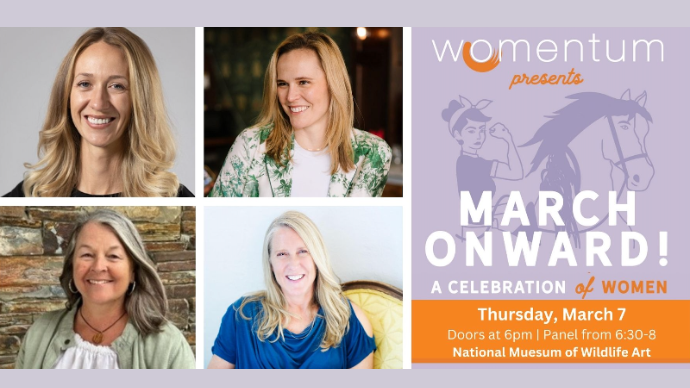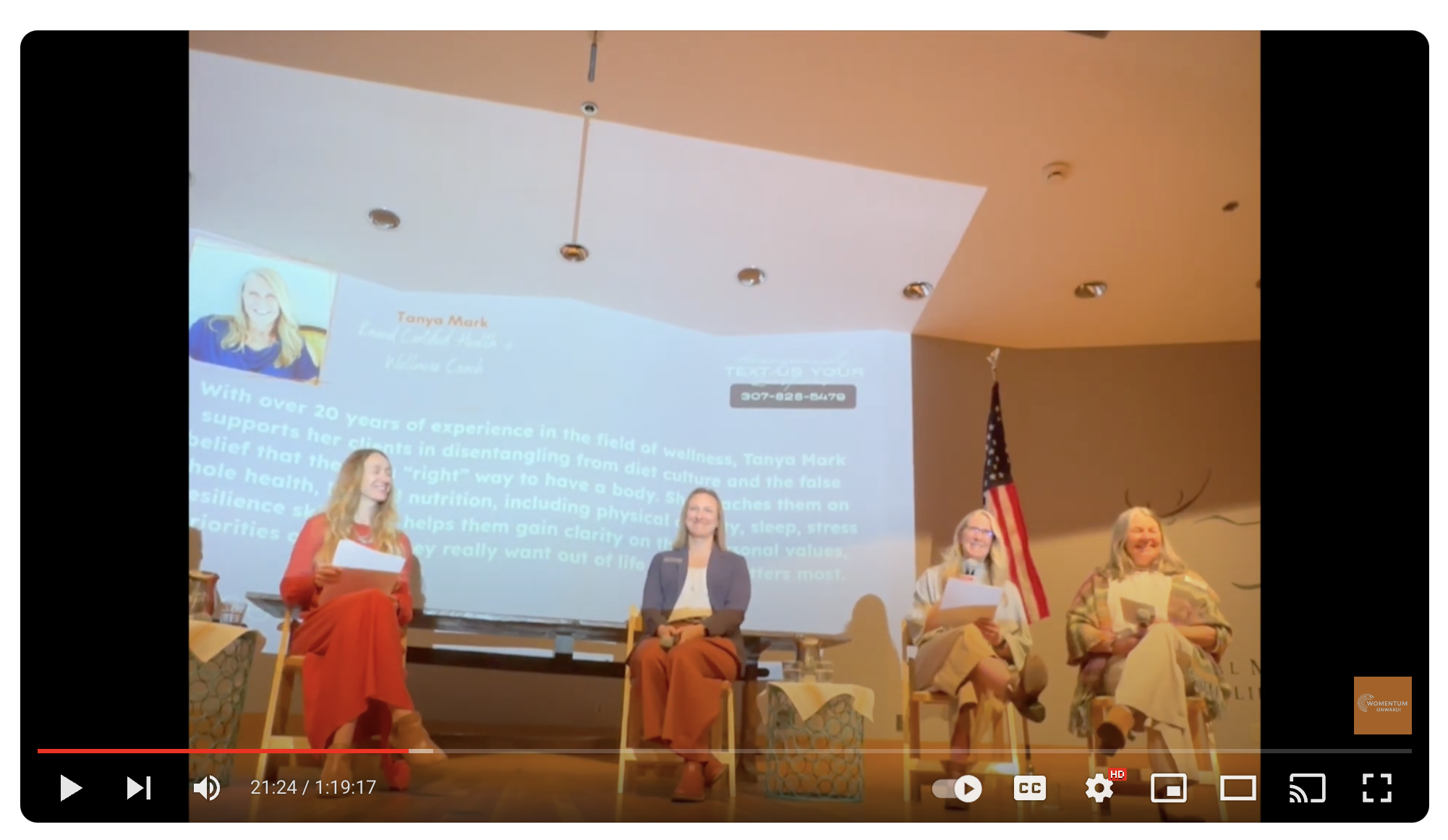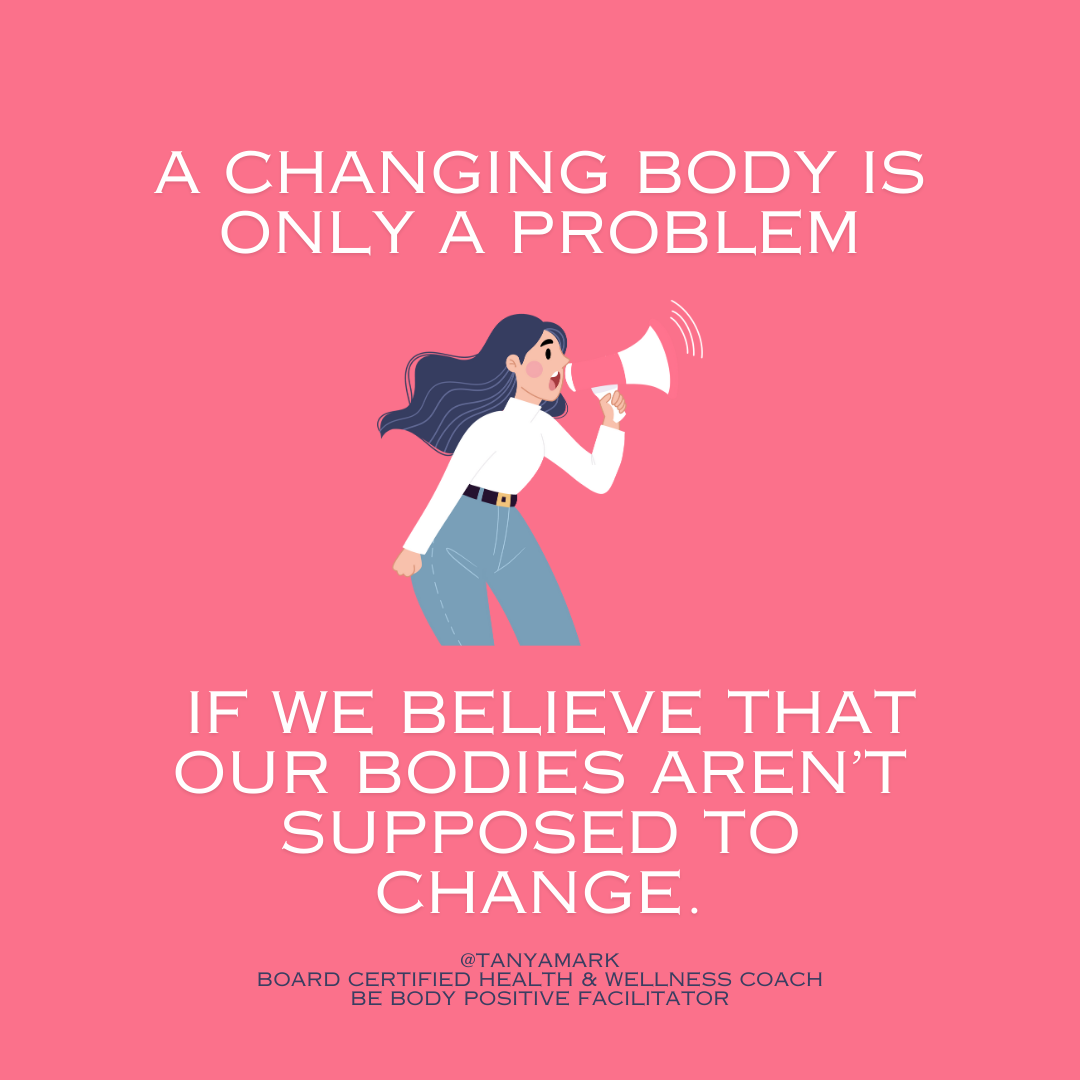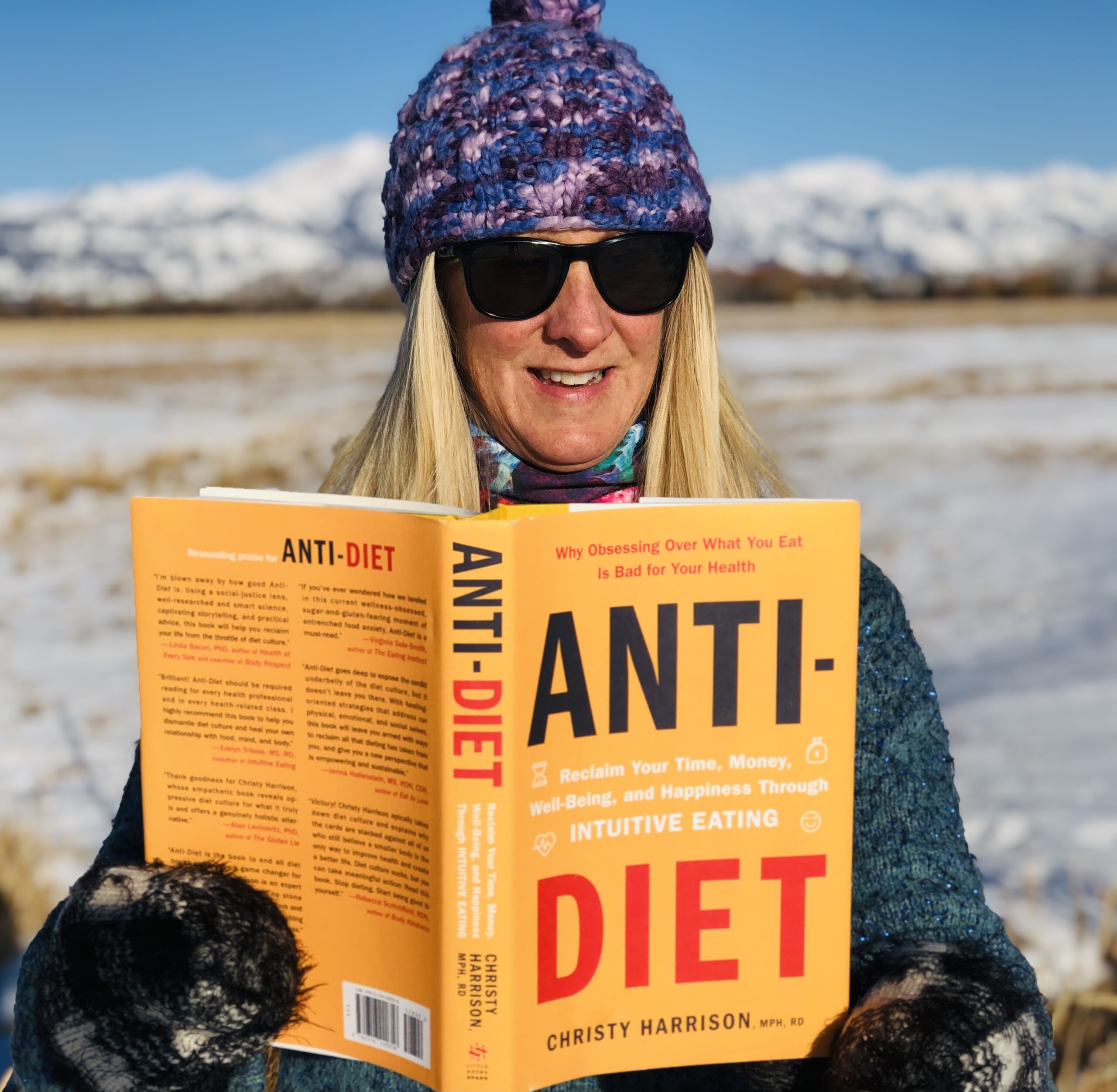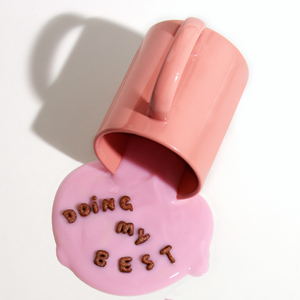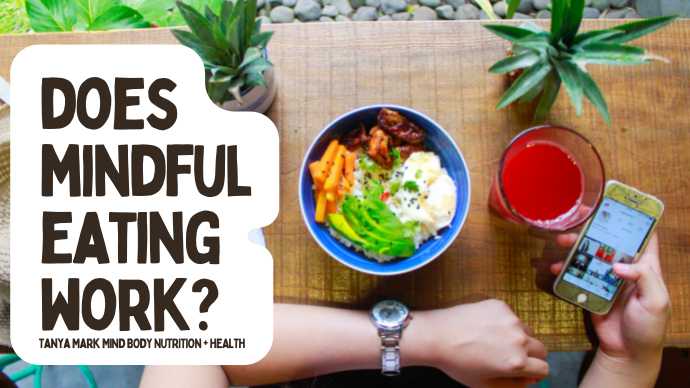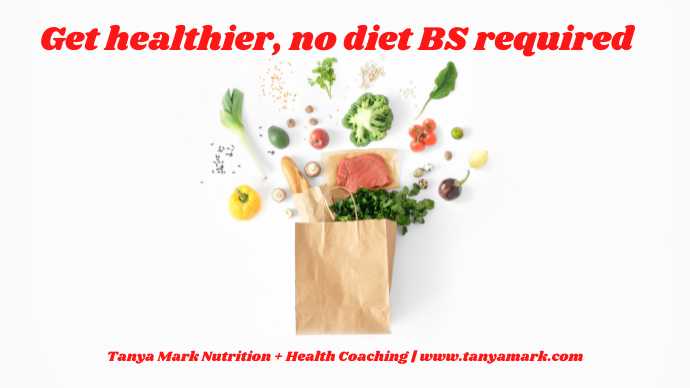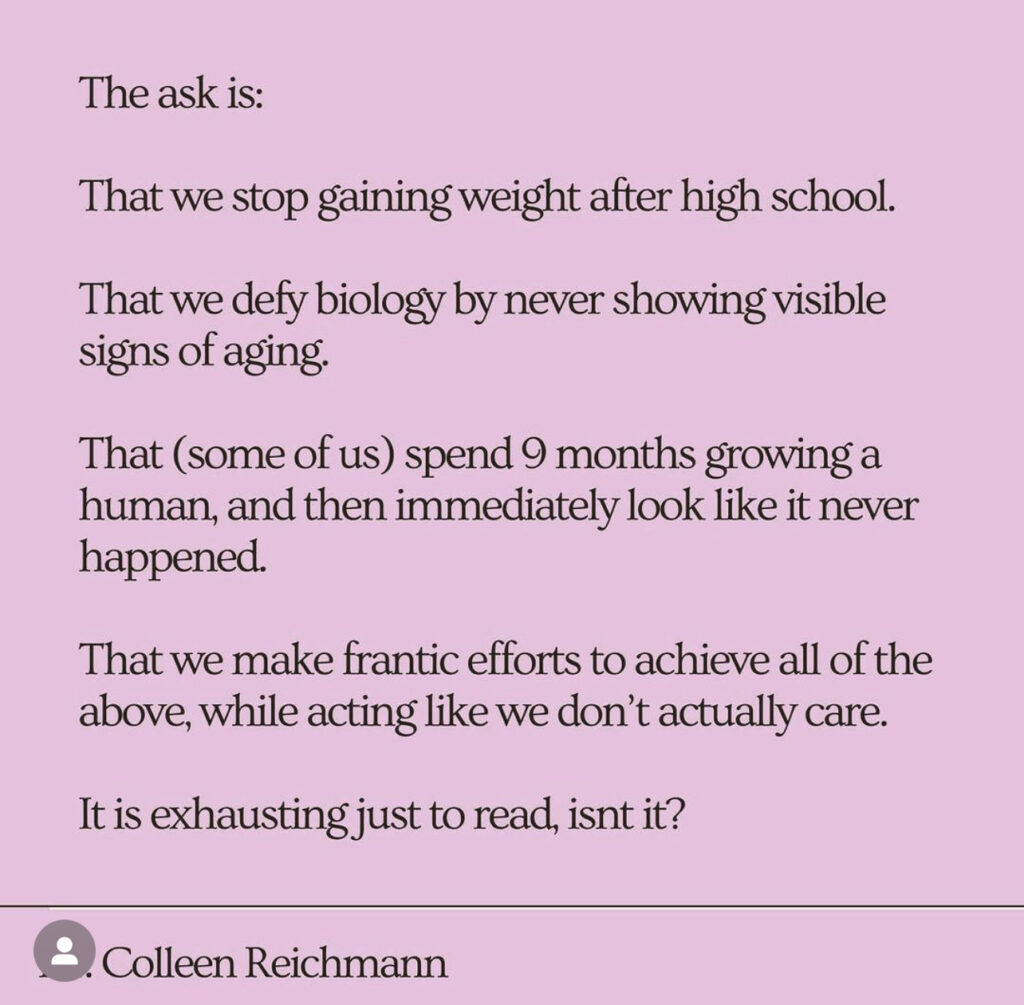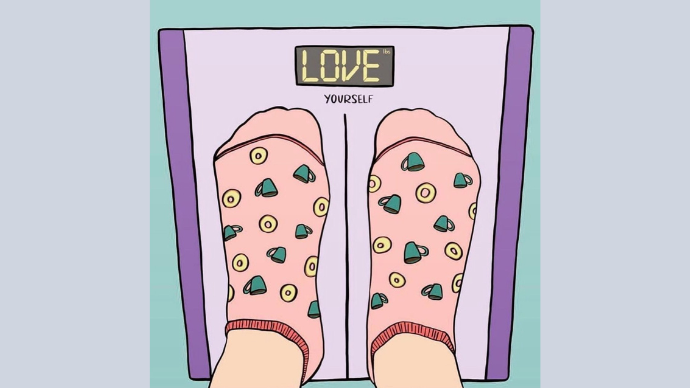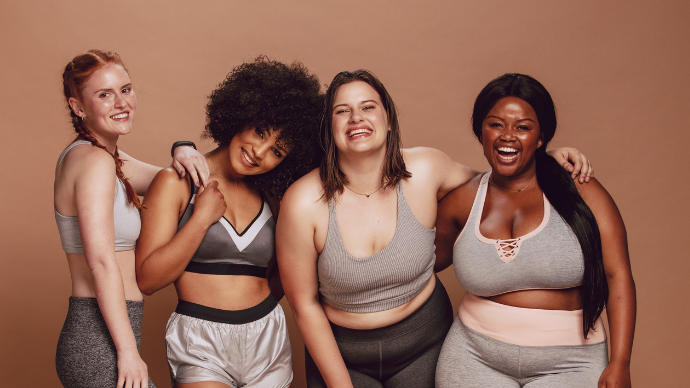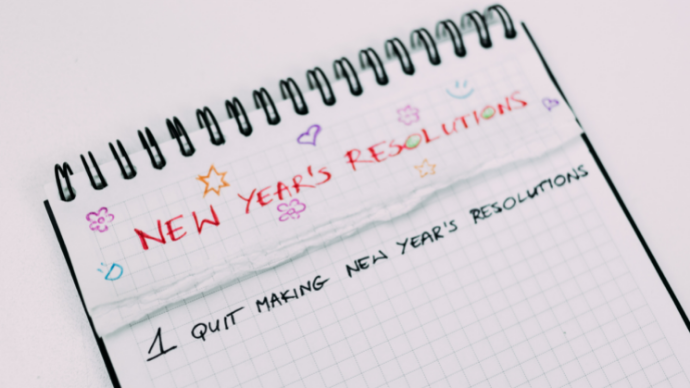Womentum March Onward 2024!
The evening before International Women’s Day and during Women’s History Month, join Womentum as four local healthcare professionals share their stories that highlight the need for a paradigm shift in our approach to women’s wellbeing: separating wellness and our worth from weight, food, and our bodies.
The pursuit of health and wellness for women in our society too often leads to diminished personal power in the form of negative body image and a preoccupation with food, exercise, and weight.
This event will arm attendees with the knowledge to make educated choices for how we spend our time, attention, and money on our physical appearance and health. We envision a shift towards celebrating what our bodies can do in the world and also developing our potential beyond our physical self!
You can watch the event recording here!
About Dr. Kelly Baxter, Family Medicine Physician
Dr. Kelly Baxter is deeply passionate about improving healthcare for those who are at greatest risk of experiencing medical and societal bias based on age, body type, sexual preference, gender identity, socioeconomic status, race, ethnicity, and other forms of discrimination that contribute to worse health outcomes.
Kelly has a special interest in women’s health at all ages. She follows the evolving science of hormone replacement therapy and strives to support women through the menopausal transition. Kelly recognizes the harms of diet culture on mental and physical health. After 15 years in premedical, medical, and residency training, Kelly was shocked to find a complete lack of education around eating disorders and a general lack of understanding and compassion around body image and weight. She has independently pursued training and mentorship in these areas, but she has found the most meaningful education has come from her patients directly. Kelly is humbled and honored to share the sacred space of the patient-provider relationship and feels that all people deserve unbiased and individualized care.
Dr. Kelly Baxter is board certified by the American Board of Family Medicine. She is certified in Integrative Medicine through the University of Arizona. She earned her bachelor’s degree from University of Wyoming and her medical degree from the University of Washington School of Medicine in Seattle, Washington. She completed her family medicine residency at Saint Anthony North Hospital in Denver, Colorado.
About Mary Ryan, Licensed Clinical Social Worker & Registered Dietitian Nutritionist
Mary Ryan’s practice, Beyond Broccoli LLC, welcomes adults and adolescents struggling with a wide range of issues, with a special focus on problems with food, eating, exercise, and body image. She began her professional journey as a dietitian more than two decades ago. Her interest in the many links between nutrition and mental health, and her passion for empowering clients to improve their relationship with food and their bodies, led her to pursue additional education, training, and licensure as a psychotherapist to help clients move beyond the “what” and towards the “why” of eating and other struggles. Integrating nutrition and psychotherapy is particularly important when there are issues such as depression, anxiety, ADHD, or difficult childhood experiences that impact every aspect of how we function later in life.
About Tanya Mark, National Board Certified Health & Wellness Coach
With over 20 years of experience in the field of wellness, Tanya Mark, started her career as a massage therapist and shifted to fitness coaching (Certified Strength and Conditioning Specialist) and then became a Nutrition Therapy Practitioner (NTP). After witnessing client frustration from failed diets and body dissatisfaction Tanya pursued additional education as a Certified Intuitive Eating Counselor and a Licensed Be Body Positive Facilitator to support her clients in disentangling from diet culture and the false belief that there’s a “right” way to have a body.
Tanya completed her studies as Board Certified Health & Wellness Coach, NBC-HWC and Certified Sleep, Stress Management & Recovery Coach (SSR). She coaches clients on whole health, beyond nutrition, including physical activity, sleep, stress resilience skills, and help them gain clarity on their personal values, priorities and what they really want out of life — what matters most. Tanya works with clients virtually, 1-1 or in her group Intuitive Eating and Be Body Positive coaching programs.
About Eden Morris, Registered Dietitian & Certified Intuitive Eating Counselor
Eden Morris is a former collegiate softball player turned mountain biker and skier who loves pocket snacks, tacos, playing outside, hanging with her Australian cattle dog, and camping in new places. Eden internalized so many of diet culture’s messages when she was a young girl. She didn’t understand that dieting would damage her body and hinder her performance in sports until she was diagnosed with Relative Energy Deficiency in Sport at age 22. 3 stress fractures in her left foot, osteopenia, and an absent menstrual cycle for 3+ years were the wakeup calls that showed her that health had to be about more than eating “clean” and weighing as little as possible.
Eden has spent the last 12 years immersing herself in the Intuitive Eating framework, making peace with food, her body, and movement. Healing her relationship with food was the healthiest thing she’s ever done for her physical and mental health. She’s a huge fan of mantras and affirmations–she often states, “A well-fed body is a resilient body.” Eden aims to live a life to show you that a fueled body performs better. No matter what phase of life we’re in, no matter what kind of movement we enjoy, our bodies deserve nourishment from foods that give us energy and bring us joy!
Eden works with active individuals of all ages who are looking to learn how to fuel their bodies without restriction, who are ready to appreciate their body for what it does for them vs how it looks, and who want to find a peaceful, accepting relationship toward themselves in order to live a life of empowerment.
Join us for Womentum March Onward 2024!


